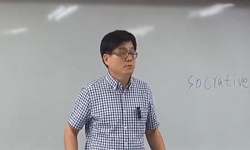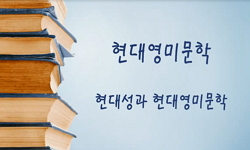이 논문은 자기배려 개념의 성립 경위, 그 의미, 교육학적 함의, 그리고 근대교육과의 관계를 해명하는 것을 목표로 한다. 자기배려 개념의 발굴로 향하는 푸코의 지적 탐색은 1976년경의 ‘...
http://chineseinput.net/에서 pinyin(병음)방식으로 중국어를 변환할 수 있습니다.
변환된 중국어를 복사하여 사용하시면 됩니다.
- 中文 을 입력하시려면 zhongwen을 입력하시고 space를누르시면됩니다.
- 北京 을 입력하시려면 beijing을 입력하시고 space를 누르시면 됩니다.
https://www.riss.kr/link?id=A107972182
- 저자
- 발행기관
- 학술지명
- 권호사항
-
발행연도
2021
-
작성언어
-
- 주제어
-
등재정보
KCI등재
-
자료형태
학술저널
-
수록면
159-196(38쪽)
- 제공처
-
0
상세조회 -
0
다운로드
부가정보
국문 초록 (Abstract)
이 논문은 자기배려 개념의 성립 경위, 그 의미, 교육학적 함의, 그리고 근대교육과의 관계를 해명하는 것을 목표로 한다. 자기배려 개념의 발굴로 향하는 푸코의 지적 탐색은 1976년경의 ‘욕망의 주체의 계보학’에 대한 관심에서 출발하여 1982년도 『주체의 해석학』 강의에서 완료된다. 자기배려는 소크라테스를 통해 철학에 도입된 이래 여러 세기에 걸쳐 서양의 철학적인 생존의 원칙으로 지속했다. 자기배려는 『알키비아데스』에서 지식·기능 습득의 교육과는 구별되는 영적이고 철학적인 파이데이아로 나타났다. 자기배려는 기원 1~2세기에 생의 준비가 아니라 생존 양식 자체, 미성년의 보완적 교육이 아니라 성년의 자기실천으로서, 평생 수행해야 할 철학적 파이데이아로 정착했다. 그것은 보편적인 격률에 그치지 않고 다양한 훈련과 수련 과정이 되었다. 그 주된 기능은 생의 준비와 적응이 아니라 비판, 투쟁, 치료였다. 자기배려 개념의 교육학적 함의는 ‘자기의 파이데이아’로 요약된다. 푸코의 자기배려 개념은 ‘우리들의 존재에 대한 끝없는 비판’이라고 하는 그의 근대 비판의 내부에서 출현했다. 푸코의 자기배려는 그의 근대교육 비판의 연장선상에 있다. 이 개념의 교육학적 함의로서 자기의 파이데이아는 근대교육과는 조화되기 어려우나 우리의 현대교육과는 보다 긍정적인 관계를 맺을 수 있다.
다국어 초록 (Multilingual Abstract)
This thesis aims to elucidate the appearance process of the concept of ‘care of the self’, its meaning, its pedagogical implications, and its relationship with modern education. Foucault’s intellectual quest toward the discovery of the concept o...
This thesis aims to elucidate the appearance process of the concept of ‘care of the self’, its meaning, its pedagogical implications, and its relationship with modern education. Foucault’s intellectual quest toward the discovery of the concept of care of the self started with his interest in the ‘genealogy of the subject of desire’ around 1976 and was completed in the lecture of The Hermeneutics of the subject in 1982. The concept was introduced into philosophy through Socrates, and it has continued as a Western philosophical principle of existence for centuries. The care of the self appeared in Plato’s Alcibiades as a principle of the spiritual and philosophical paideia, distinct from the education of knowledge and skill acquisition. The concept of care of the self was established in the 1st and 2nd centuries AD as a principle of the philosophical paideia to be practiced throughout one’s life, not as a preparation for life, but as a mode of existence itself, not as a supplementary education for minors, but as a practice of the self for adults. It has not remained as a universal maxim of morality, but has become a practice of variety of physical and mental training courses. Its main function was not to prepare and adapt to life, but to criticize, struggle, and heal. The pedagogical implications of the concept of care of the self can be summarized as Paideia of the Self. Foucault’s concept of care of the self emerged within his critique of ‘the endless critique of our existence’. Foucault’s care of the self is an extension of his critique of modernity and its education. As a pedagogical implication of this concept, Paideia of the Self cannot be easily harmonized with modern education, but it will be able to establish a more positive relationship with our contemporary education.
동일학술지(권/호) 다른 논문
-
- 한국교육사학회
- 강동호 ( Kang Dong-ho )
- 2021
- KCI등재
-
- 한국교육사학회
- 강명숙 ( Kang Myung-sook )
- 2021
- KCI등재
-
일제 식민지기 ‘전문정도 사립각종학교’ 사례연구 - 경성법정학교의 설립과 운영 -
- 한국교육사학회
- 김자중 ( Kim Ja Joong )
- 2021
- KCI등재
-
- 한국교육사학회
- 서나래 ( Seo Narae )
- 2021
- KCI등재






 KISS
KISS





